Search Results for Tag: India
Schooling meets soccer in Mumbai’s slums
India is a country of cricket-lovers, so can soccer catch on?
Ashok Rathod is convinced that soccer is the best way to give kids growing up in the slums a second lease on life. Teamwork, leadership, respect and communication come out of the game for 22 players.
Having grown up in a Mumbai slum himself, Ashok knows exactly which problem the kids there face. Many start drinking and gambling as young as 10, he says, then get married early and drop out of school.
Committed to make a difference, Ashok founded the Oscar Foundation in 2006. The team organizes soccer practices and matches for young people – but also provides an education program aimed at giving school drop-outs basic literacy skills.
Listen to the report by Sanjay Fernandes in Mumbai:
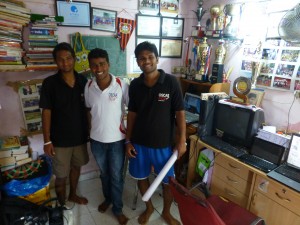
Suraj (right) is Oscar’s associate director and Kumar (left) participated in the Oscar program and now works as a coach (Photo: S. Fernandes)
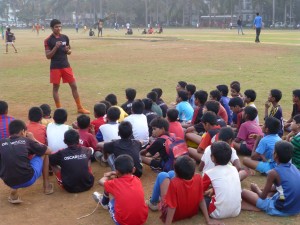
The Oscar Foundation focuses not only on soccer – but also on education programs (Photo: S. Fernandes)
First published on February 26, 2014.
How a ball can change a slum kid’s life
India is a country of cricket-lovers, so can soccer catch on?
Ashok Rathod is convinced that soccer is the best way to give kids growing up in the slums a second lease on life. Teamwork, leadership, respect and communication come out of the game for 22 players.
Having grown up in a Mumbai slum himself, Ashok knows exactly which problem the kids there face. Many start drinking and gambling as young as 10, he says, then get married early and drop out of school.
Committed to make a difference, Ashok founded the Oscar Foundation in 2006. The team organizes soccer practices and matches for young people – but also provides an education program aimed at giving school drop-outs basic literacy skills.
Listen to the report by Sanjay Fernandes in Mumbai:

The Oscar Foundation focuses not only on soccer – but also on education programs (Photo: S. Fernandes)

Suraj (right) is Oscar’s associate director and Kumar (left) participated in the Oscar program and now works as a coach (Photo: S. Fernandes)
Delhi musician tells untold stories of suffering
Indian musician Delhi Sultanate travels to rural regions to record the music tied to struggles that rarely make the news. He integrates the untold stories and unheard sounds into his Jamaican dancehall sound for a new audience.
Listen to the report from Delhi by Henry Peck and Meara Sharma:
Delhi musician tells untold stories of suffering
Check out more from Delhi Sultanate on YouTube.
Here’s Delhi Sultanate’s website.
Magazine helps children escape brothel life
Children of prostitutes often end up working in the trade themselves. But some brothel children in India, who have launched a unique handwritten magazine, are making efforts to escape the trap.
Read the article here.
An ear for adolescent girls in Bangalore
Sinu, 30, from Bangalore, gave up a promising engineering career to give back to her community. She is now on a mission to keep adolescent girls in school by promoting awareness about the taboo topic of menstruation.
Listen to the report by Pia Chandavarkar in Bangalore:
Teaching Indians to read Karaoke style
Social entrepreneur Brij Kothari has set up an innovative project to teach Indians how to read and write by simply singing film songs in front of the television. Kothari’s trick is to subtitle Indian Bollywood songs in the same language in which they are sung in an effort to appeal to the 300 million or so Indians who can’t read or write. As they sing along, they learn to read.
Watch this DW video for more.
New Delhi woman unlocks power of music for street kids
A young woman in New Delhi opens up the world of music to at-risk kids. Many of them have been traumatized and abandoned, but Faith, 23, gives them self-confidence and new skills with her organization, Music Basti.
From reporter Aletta André:
The moment we walk into the Kushi Home, Faith Gonsalves is surrounded by girls who demand her attention. “Didi, didi,” they yell at her: “Big sister.”
More than 100 girls between the ages of six and 14 live in the Kushi Home, in an industrial area in the southern outskirts of India’s capital New Delhi. Some of them might be orphans, some have run away from their homes, while others have families incapable of taking care of them.
Faith, a 23-year-old from New Delhi, has earned her popularity. For the past four years, she has been devoting most of her time to children like the girls living here, by teaching them music.
“The far majority of the children that we work with have been sexually abused,” Faith told me just about an hour before reaching the home, when we first met in a café in one of Delhi’s wealthier areas. It is impossible not to remember this while looking at all those girls, running around the playground, posing for my pictures and demanding attention from their didi.
A singer and music-lover herself, Faith knew that music can help children immensely, not only to enjoy life and forget their problems, but also to develop communication skills and to boost their confidence. To teach music and music appreciation to so-called children-at-risk, she decided to start up the project Music Basti in 2008 when she was still a college student at Delhi University.
Music Basti now organizes several workshops in singing and playing instruments every week, the occasional music performance and even launched an album with songs by the children last year. The project works together with dozens of other organizations and has worked with a few hundred volunteer teachers and musicians. It reaches out to more than 400 girls and boys in places such as Kushi Home.
Listen to the report:
India’s ‘Paperman’ recycles waste to fund education for girls
A year ago, 23-year-old Mathew Jose found out that only 20 percent of the waste generated in India is recycled. This was despite the unique system of door-to-door rag-pickers in India who buy waste from households and sell it to recyclers at a higher price. This inspired Mathew to start a recycling revolution by reviving the unorganized sector of rag-pickers – and raise funds through recycling, too.
Mathew’s passion and faith in his cause is contagious, and that’s plain to see at all his campaigns. But Mathew is quick to insist that the real hero is the movement itself, and the ones who make it all possible – the rag-pickers.
Listen to Pia Chandavarkar’s report:
India’s Paperman recycles waste to fund education for girls
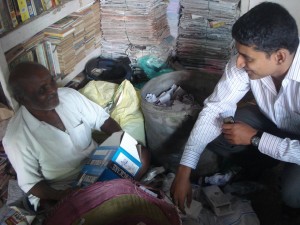
Mathew Jose, right was inspired by the scrap dealers and rag-pickers in India, who, according to him, are the ones who make recycling happen in India.
Young engineer helps India’s poor
Mathew decided to return to India and help the poor gain access to education and health services. Before embarking on the project, he tried to find out what it was like below India’s poverty line.
Young engineer helps India’s poor
From DW reporter Pia Chandavarkar in India:
When the Indian government’s Planning Commission recommended that the official poverty level start with those who earn a mere 65 cents per day, many were up in arms, saying the figure was too low and unreasonable. Amidst this debate, I found it interesting to see two people who went beyond arguing and tried it out themselves. When I found out they were doing this for a larger cause, I was even more intrigued. Mathew and Tushar had also spent three weeks living on the average Indian income of $2 a day in the city of Bangalore before moving on to the final phase of their project – 65 cents a day. People talk of a brain drain in India, but it’s encouraging to see talented youth return to their homeland, inspired to make a difference.
Check out Mathew and Tushar’s blog here.



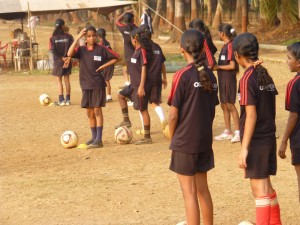


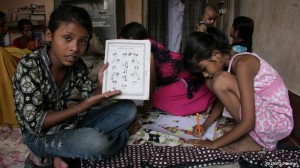
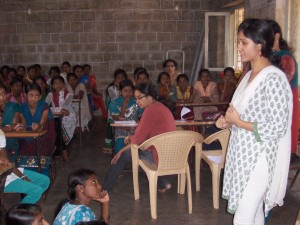
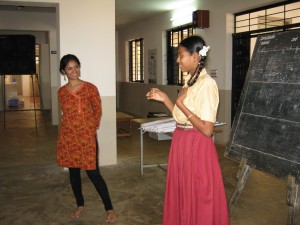
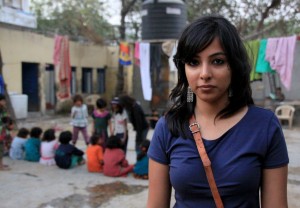
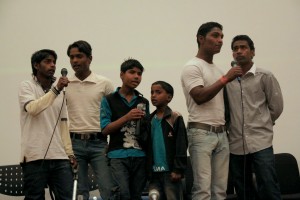
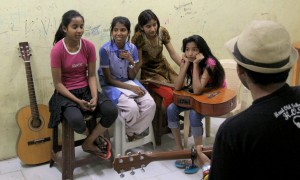

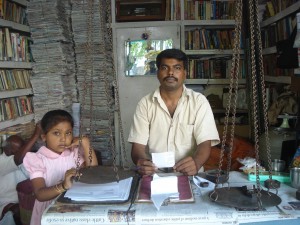
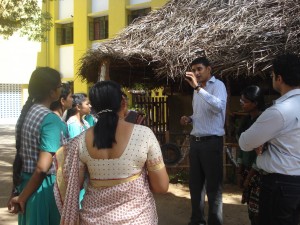
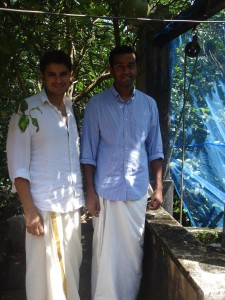


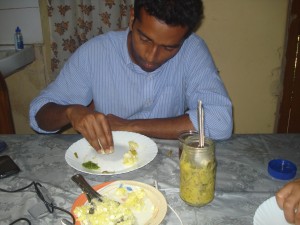
Feedback